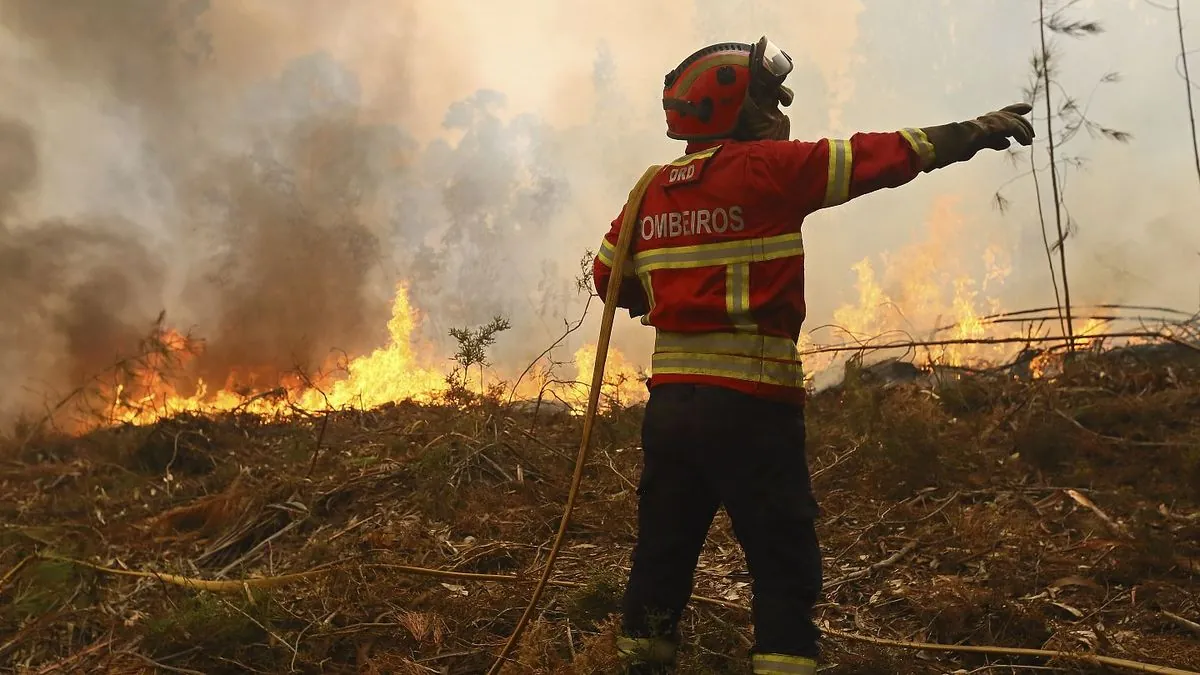Portugal Arrests 14 Suspected Arsonists Amid Deadly Wildfire Crisis
Portuguese authorities have apprehended 14 individuals suspected of arson in connection with recent deadly wildfires. Experts cite criminal activity, climate change, and rural depopulation as contributing factors to the crisis.

Portuguese law enforcement has detained 14 individuals suspected of arson in connection with the recent outbreak of deadly wildfires across the country. These arrests come as Portugal grapples with a severe wildfire crisis that has claimed at least seven lives and caused extensive damage to property and forests.
Luis Montenegro, the Prime Minister of Portugal, has pledged to take firm action against those responsible for these fires. He emphasized the government's commitment to addressing "particular interests" that may be driving these criminal acts.
Experts have weighed in on the situation, suggesting that many of the fire outbreaks show signs of deliberate action. Salvador Pinho Ferreira de Almeida, a professor at Lusofona University specializing in civil protection, noted the unusual timing and distribution of the fires, stating, "Many of the fires started at night, and it's very strange to see so many outbreaks scattered across the country."
Criminologist Andre Inacio pointed out that arson may be exacerbating an already precarious climate situation. He suggested that economic motives, such as the purchase of burnt wood or land at reduced prices, could be driving some of these actions. Mental health issues were also cited as a potential factor in some cases.
Portugal's vulnerability to wildfires is not a new phenomenon. The country has one of the highest forest fire risks in Europe, exacerbated by its Mediterranean climate and recent severe droughts. In June 2017, Portugal experienced its deadliest wildfires in history, resulting in 66 fatalities.
A 2017 study on forest fires in Portugal revealed that arson accounted for nearly 36% of the wildfires that claimed 45 lives in October of that year. This statistic underscores the significant role that intentional fire-setting plays in the country's wildfire crisis.
Further research by Portuguese scholars Jessica Rolho and Cristina Soeiro in 2019 provided insights into the motivations of arsonists. Their study of 260 individuals found that anger and revenge were primary drivers, particularly among women. Approximately 27% of male arsonists used fire-setting as a means for personal gain.
The current wildfire crisis is compounded by rural depopulation, which has led to neglected landscapes and overgrown vegetation. These conditions create an "explosive situation," according to Lindon Pronto, a Germany-based fire management expert at the European Forest Institute.
To address these challenges, Portugal has implemented various measures. The country has a specialized forest fire prevention and fighting force called "Força Especial de Proteção Civil" and has invested in advanced fire detection systems, including satellite monitoring. Additionally, the government has launched a national fire prevention plan named "Portugal Chama" and has been working on reforestation efforts to restore areas affected by wildfires.
As Portugal continues to battle this crisis, experts emphasize the need for comprehensive landscape management and prevention efforts. The country's rich forest heritage, including its position as the world's largest cork producer, underscores the importance of protecting these valuable natural resources from the growing threat of wildfires.
"We will take repressive action against crimes committed in the name of particular interests."


































